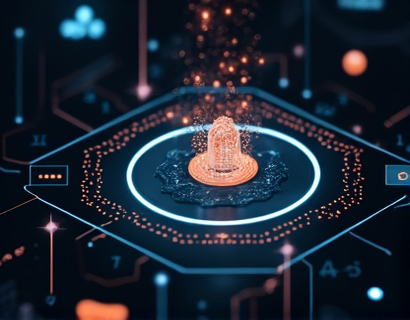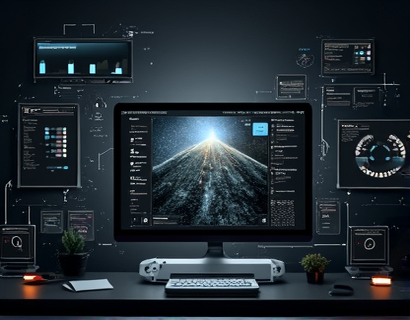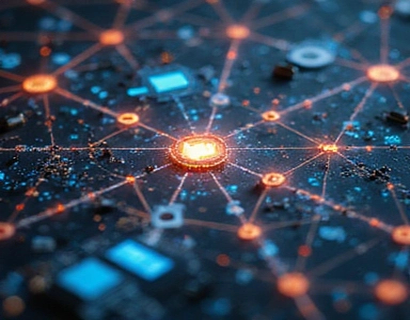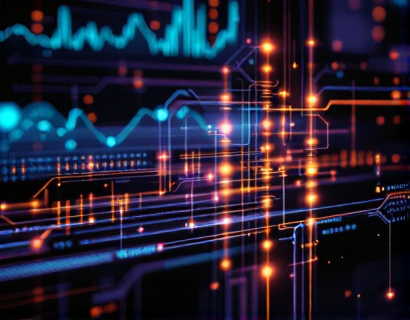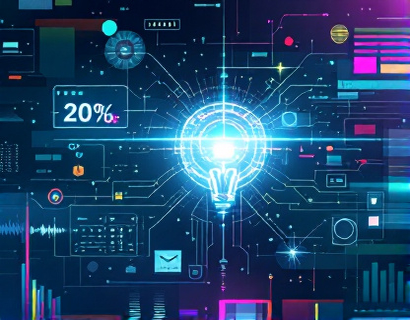Crypto AI Fusion: Pioneering Digital Transformation for Tech Innovators
The intersection of cryptocurrency and artificial intelligence (AI) is giving rise to a new era of digital transformation, one that promises to revolutionize how tech innovators and early adopters interact with technology. This fusion is not just a trend but a fundamental shift in the way we perceive and utilize digital solutions. As we delve into this topic, it's essential to understand the core components of both cryptocurrency and AI, and how their integration is reshaping the tech landscape.
Cryptocurrency, since its inception with Bitcoin in 2009, has evolved from a niche digital currency to a robust ecosystem encompassing various assets, smart contracts, and decentralized applications (dApps). The underlying blockchain technology ensures transparency, security, and decentralization, which are critical for building trust in digital transactions. On the other hand, AI has advanced significantly, from basic machine learning algorithms to sophisticated neural networks capable of complex decision-making and predictive analytics.
The merging of these two technologies creates a powerful synergy that can drive innovation across multiple sectors. For tech innovators, this fusion opens up new possibilities for developing applications that are not only more secure and efficient but also capable of learning and adapting to user behavior. This article will explore the transformative impact of Crypto AI Fusion, highlighting key innovations and their potential to reshape the digital world.
Understanding Crypto AI Fusion
Crypto AI Fusion refers to the integration of artificial intelligence with blockchain and cryptocurrency technologies. This combination leverages the strengths of both domains to create solutions that are intelligent, autonomous, and secure. The primary goal is to harness AI's ability to process and analyze vast amounts of data, combined with the immutable and transparent nature of blockchain, to build systems that can operate with minimal human intervention.
One of the most significant advantages of Crypto AI Fusion is its potential to enhance security. AI algorithms can detect and respond to anomalies in real-time, reducing the risk of fraud and cyber attacks. For instance, AI-powered security systems can monitor blockchain transactions and identify suspicious patterns, automatically triggering alerts or countermeasures. This proactive approach to security is crucial in an environment where digital assets are increasingly becoming targets for malicious actors.
Another critical aspect is the improvement in efficiency. AI can optimize various processes within the blockchain ecosystem, from transaction validation to smart contract execution. By automating these tasks, AI reduces the computational load and energy consumption, making blockchain more sustainable. Additionally, AI can predict network congestion and adjust parameters to maintain optimal performance, ensuring a smooth user experience.
Innovations in Decentralized Applications
Decentralized applications (dApps) are at the forefront of Crypto AI Fusion, offering users a new paradigm of digital services. Unlike traditional applications, dApps run on blockchain networks, eliminating the need for intermediaries and central authorities. This decentralization, combined with AI capabilities, enables the creation of highly responsive and personalized applications.
One notable innovation is the development of AI-driven dFinance (DeFi) platforms. These platforms use AI to enhance trading algorithms, risk management, and portfolio optimization. For example, AI can analyze market trends and historical data to make informed trading decisions, providing users with better investment strategies. Smart contracts, powered by AI, can automate these processes, ensuring execution based on predefined conditions without human intervention.
Beyond finance, AI-enhanced dApps are transforming industries such as healthcare, supply chain, and gaming. In healthcare, AI can analyze medical data stored on blockchain to provide personalized treatment recommendations, while ensuring patient data privacy and security. In supply chain management, AI can track and verify the authenticity of products using blockchain, reducing fraud and improving efficiency.
Enhancing User Experience through AI
The integration of AI in blockchain-based systems significantly enhances user experience. AI-driven interfaces can understand user preferences and behavior, tailoring the application's functionality to individual needs. This personalization not only improves usability but also increases user engagement and satisfaction.
For instance, AI can power virtual assistants within dApps, providing users with intuitive and conversational interactions. These assistants can handle tasks such as managing digital wallets, executing transactions, and offering real-time support. The combination of AI's natural language processing capabilities and blockchain's security ensures a seamless and secure user experience.
Moreover, AI can facilitate better user onboarding and education. Complex blockchain and cryptocurrency concepts can be simplified through AI-generated tutorials and explanations, making it easier for new users to adopt these technologies. This democratization of knowledge is essential for broadening the adoption of Crypto AI Fusion solutions.
Challenges and Considerations
While the potential of Crypto AI Fusion is immense, there are several challenges and considerations that tech innovators must address. One of the primary concerns is the regulatory landscape. The intersection of cryptocurrency and AI operates in a relatively uncharted legal territory, with varying regulations across different jurisdictions. Innovators need to stay informed about local and international regulations to ensure compliance and avoid legal pitfalls.
Another challenge is the technical complexity involved in integrating AI with blockchain. Developing robust and scalable solutions requires expertise in both domains, which can be a barrier for smaller teams or startups. Collaboration and knowledge sharing within the tech community can help overcome these challenges, fostering a more collaborative and innovative ecosystem.
Privacy is also a critical consideration. While blockchain's transparency is a strength, it can conflict with user privacy expectations. AI can help mitigate this by implementing advanced encryption and privacy-preserving techniques, ensuring that sensitive data remains protected. Balancing transparency with privacy is essential for building trust and widespread adoption.
Future Prospects and Trends
Looking ahead, the future of Crypto AI Fusion holds exciting possibilities. As AI algorithms become more advanced, we can expect even more sophisticated applications in areas such as predictive analytics, autonomous trading, and smart city management. The integration of AI with other emerging technologies, like the Internet of Things (IoT) and 5G, will further enhance the capabilities of blockchain-based systems.
One trend to watch is the rise of AI-powered oracles, which act as bridges between blockchain and external data sources. These oracles can provide real-time data to smart contracts, enabling more dynamic and responsive applications. For example, in the context of insurance, AI oracles can assess damage from natural disasters and automatically trigger payouts based on predefined conditions.
Another promising area is the development of AI-driven blockchain governance models. These models can use AI to analyze community feedback and propose improvements to blockchain protocols, ensuring that the technology evolves in line with user needs and market demands. This decentralized governance approach can lead to more resilient and adaptive blockchain ecosystems.
Conclusion
The fusion of cryptocurrency and artificial intelligence is poised to drive significant advancements in the tech landscape, offering innovative solutions that enhance security, efficiency, and user experience. For tech innovators and early adopters, embracing Crypto AI Fusion presents a unique opportunity to be at the forefront of this digital revolution. By understanding the potential and addressing the challenges, we can unlock a future where technology is not only more powerful but also more intuitive and secure.







